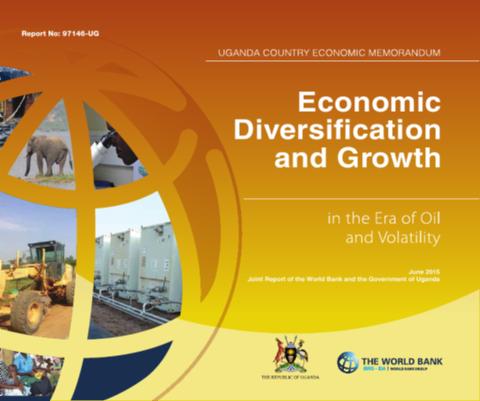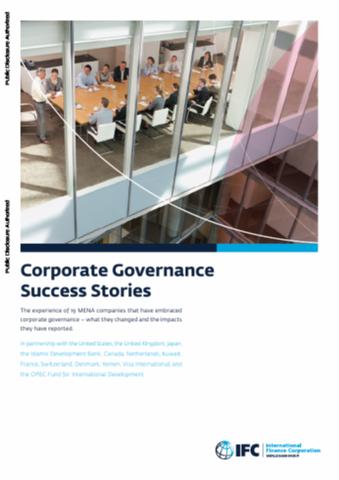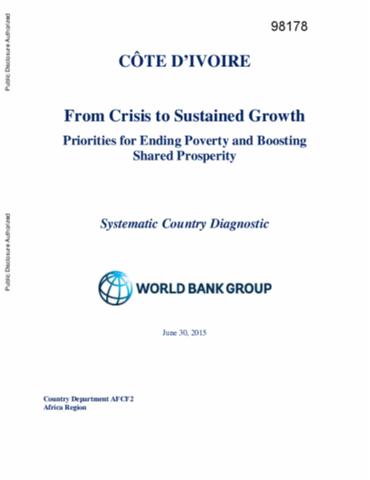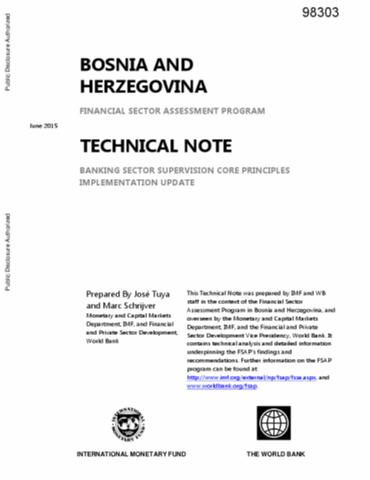The World Bank is a vital source of financial and technical assistance to developing countries around the world. We are not a bank in the ordinary sense but a unique partnership to reduce poverty and support development. The World Bank Group has two ambitious goals: End extreme poverty within a generation and boost shared prosperity.
- To end extreme poverty, the Bank's goal is to decrease the percentage of people living on less than $1.25 a day to no more than 3% by 2030.
- To promote shared prosperity, the goal is to promote income growth of the bottom 40% of the population in each country.
The World Bank Group comprises five institutions managed by their member countries.
The World Bank Group and Land: Working to protect the rights of existing land users and to help secure benefits for smallholder farmers
The World Bank (IBRD and IDA) interacts primarily with governments to increase agricultural productivity, strengthen land tenure policies and improve land governance. More than 90% of the World Bank’s agriculture portfolio focuses on the productivity and access to markets by small holder farmers. Ten percent of our projects focus on the governance of land tenure.
Similarly, investments by the International Finance Corporation (IFC), the World Bank Group’s private sector arm, including those in larger scale enterprises, overwhelmingly support smallholder farmers through improved access to finance, inputs and markets, and as direct suppliers. IFC invests in environmentally and socially sustainable private enterprises in all parts of the value chain (inputs such as irrigation and fertilizers, primary production, processing, transport and storage, traders, and risk management facilities including weather/crop insurance, warehouse financing, etc
For more information, visit the World Bank Group and land and food security (https://www.worldbank.org/en/topic/agriculture/brief/land-and-food-security1
Resources
Displaying 891 - 895 of 4907Uganda Country Economic Memorandum
The objective of the Ugandan government is to make Uganda an upper - middle income country within thirty years. Economic diversification is a key component of that strategy. The country economic memorandum (CEM) report discusses how the emergence of oil and mineral production can contribute to Uganda’s effort to promote economic diversification as a means to achieve sustainable and shared growth.
Corporate Governance Success Stories
This report summarizes the experiences of 19 companies from across the region. Each of the case studies highlights the key corporate governance changes made and the positive impacts that resulted, as reported by the company. The companies represent various countries, sectors, types, and sizes. All of the companies featured are former IFC Advisory Services clients. Some are IFC Investment clients as well. IFC conducted an in-depth corporate governance assessment for each of these companies using IFC’s Corporate Governance Methodology.
Handshake, No. 16 (June 2015)
The latest issue of Handshake, focused on public-private partnerships in the Innovation. “An age of constant invention naturally begets one of constant failure,”the New York Times Magazine declared in a recent story called “Welcometo the Failure Age.” Its core premise—that innovation is inextricably linked with failure—may be a fresh insight for the high-tech era, but has long been understood by those who work in infrastructure. To state the obvious:for those of us in infrastructure PPPs, failure is not a novel concept.Innovation is.
Cote d'Ivoire
This systematic country diagnostic is structured in two main parts, one backward looking and the other forward looking. The backward-looking analysis aims to draw lessons on the determinants of poverty and sustainable and inclusive growth from (a) stakeholder consultations; (b) a poverty profile; (c) a jobs profile; and (d) a review of Cote d’Ivoire’s experience, and a comparison with Ghana and Sri Lanka, countries with similarities to Côte d’Ivoire, but with different growth trajectories.
Bosnia and Herzegovina
This Technical Note was prepared by IMF and WB staff in the context of the Financial Sector Assessment Program in Bosnia and Herzegovina, and overseen by the Monetary and Capital Markets Department, IMF, and the Financial and Private Sector Development Vice Presidency, World Bank. It contains technical analysis and detailed information underpinning the FSAP’s findings and recommendations. A review of supervisory practices was conducted to assess progress towards implementation of the Basel Committee Core Principles for Effective Banking Supervision.










